Conversations on Country at Aurukun
By Dana Bradford
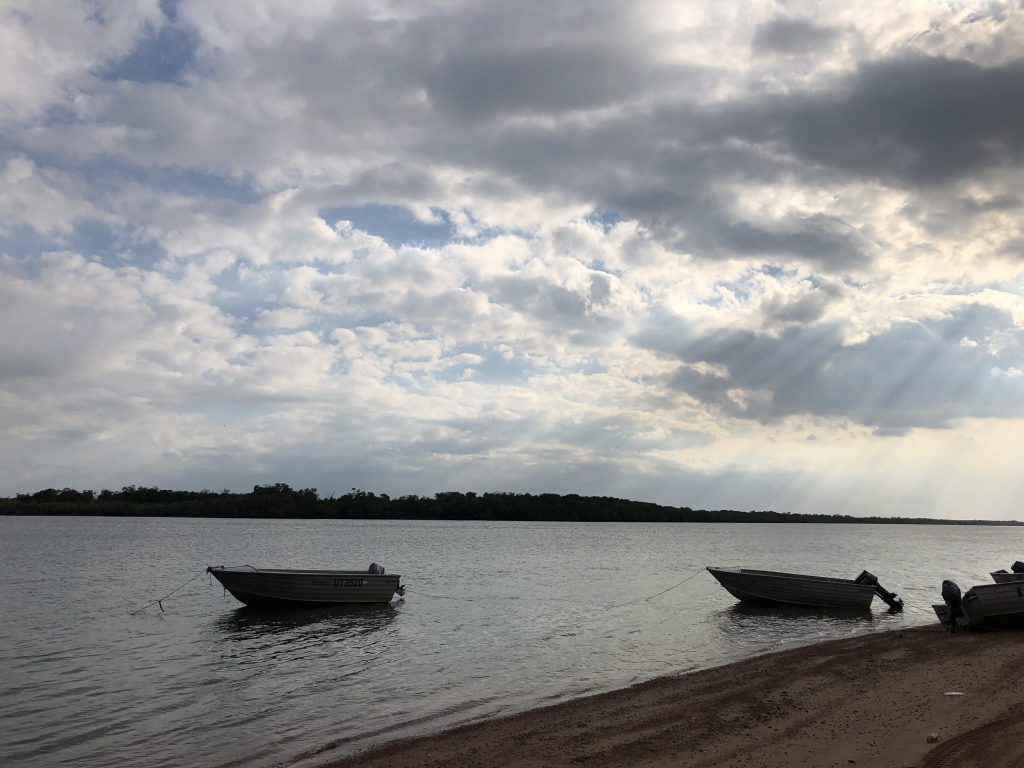
The Archer River at Aurukun.
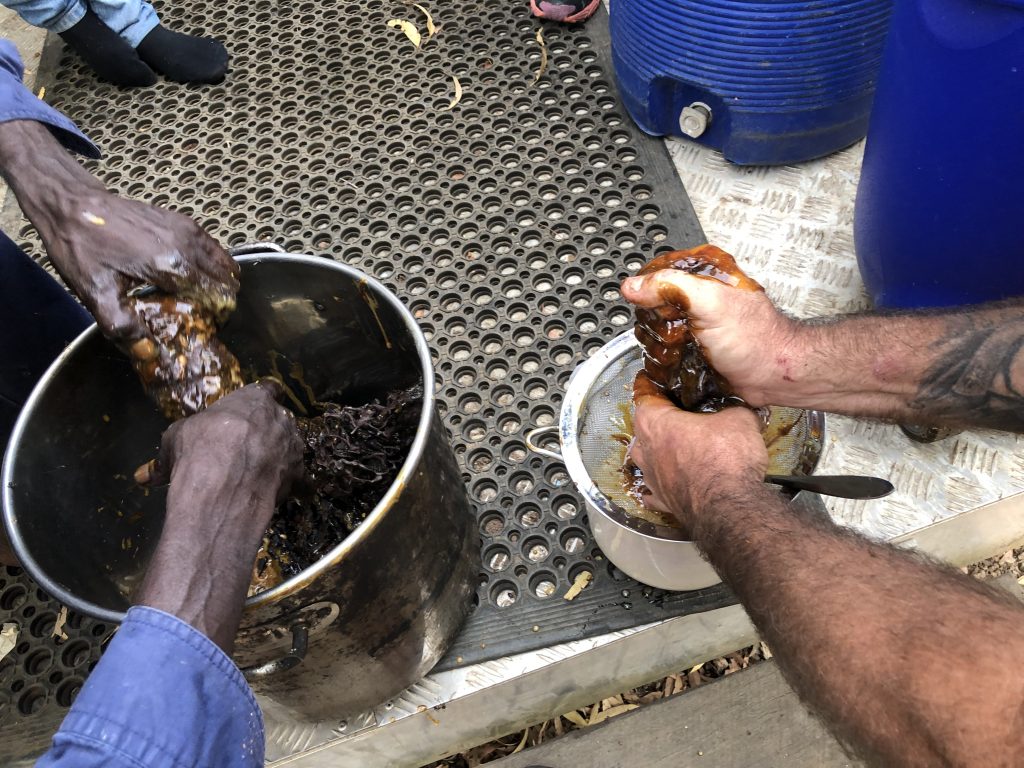
Squeezing honey from a native bee hive.
During the camp the boys work beside the rangers, erecting the supports for the humpy, and laying the paperbark on in sheets. They harden their saplings across a fire, and straighten any bends in the wood. You can tell one of the lads comes from a long line of spear makers, as he tilts his head to run a critical eye along the length of his spear shaft. Tomorrow they will use the bark of a root, pounded together with the beeswax, to make a resin to secure the metal barbs before painting their spears with traditional markings. The spear makers have embraced technology, using drills and grinders, so I tell them that soon girls will want to make spears and ask when they will teach them. “Never,” they reply. “Spear making is only for men. Women make baskets.” And they do, beautiful baskets. And there is as much foraging and gathering for the women’s activities as the men’s. Roots for dyes, pandanus and palm fibres. While spears are made with minimal verbal interaction, the weaving tent is full of chatter, stories and laughter.
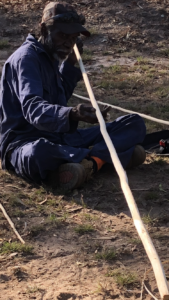
Ranger Vernon teaches the boys how to make spears. (Photo used with permission.)
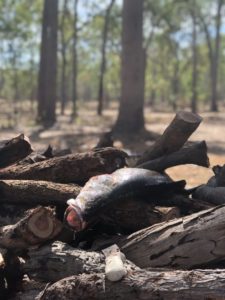
Fresh caught barra to be cooked in a firepit
At night around the campfire, full from a feast of fresh caught barramundi and magpie geese, we listen to stories told in Wik of early mission days, and watch movies of when Aurukun was mapped for Native Title.
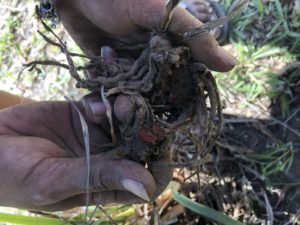
The red root of an orchid provides a dye for basket making
Dana Bradford was invited to Aurukun through an existing relationship between the Community and CSIRO Land and Water. The project was funded by CSIRO Health & Biosecurity Indigenous Seed Funding
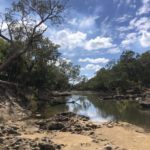
Stoney Creek, on Mother Archer’s land, has strong cultural significance.
and aimed at working with the Community to enhance health and wellbeing. The Returning Generation camp is organised by the local group Aak Puul Ngantam (APN) and run by local Indigenous Rangers and Wik Elders. In the local language, Wik Mungkan, Aak Puul Ngantam translates as ‘Our father’s father’s country’ and the Returning Generation Camp is called Tha’ Pemp Wuut Mangkantam.
The Australian e-Health Research Centre (AEHRC) is CSIRO's digital health research program and a joint venture between CSIRO and the Queensland Government. The AEHRC works with state and federal health agencies, clinical research groups and health businesses around Australia.
